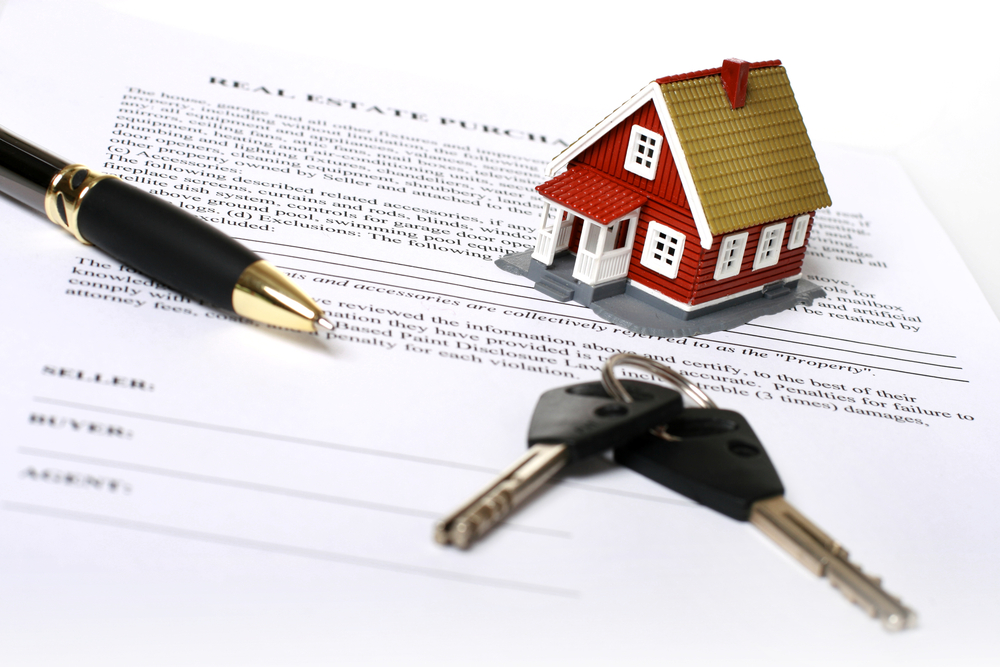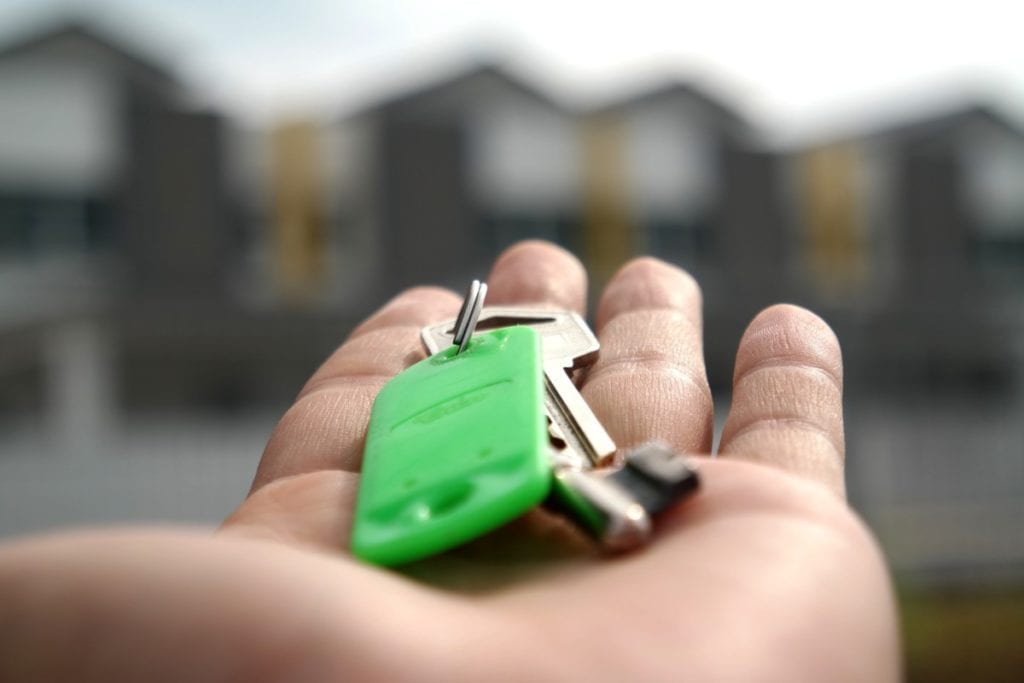So, you’re planning on renting a property in the Netherlands and using a Dutch rental agency? First things first, welcome to the Netherlands! Also, welcome to the wonderful world of renting.
In order to make sure you’re on the right track, we have compiled a list of things you need to know when using a Dutch rental agency so that you don’t get caught out by any of those scams out there!
Before we start, finding a place to rent in the Netherlands is hard work. The country, in general, has a shortage of houses, especially concentrated in the bigger cities, so sometimes, the minute you find a place to rent, it has gone before you’ve refreshed your webpage.
READ MORE| Rent or buy a house in the Netherlands? What you need to know in 2022
It’s important to be on the ball and ready for a lot of disappointments along the way. However, it’s good to know that the rights of tenants are taken seriously in the Netherlands.
It’s hard for the landlord to even get rid of a tenant without getting the courts involved (not so good for the landlords, though 😬).
Rest assured that you’re safe, as long as you remember these seven things to know when renting a property in the Netherlands and using a Dutch rental agency. Let’s get started…
What can I expect when I rent in the Netherlands?
How does it work? What is the etiquette, what do you need? Say no more.

Rental cost and property type
When renting a property in the Netherlands, rent costs vary substantially throughout the Netherlands. You could be paying as little as €200, or over €5500 per month.
As usual, the centre of big cities is often the most expensive and the outskirts or other small cities tend to be cheaper. So, be prepared to pay if you want to live that city lifestyle!
Many places are self-contained flats and are usually unfurnished. If it’s listed as “bald” or “shell”, this means that even flooring and light fittings are not included. Please make sure to check this before you decide to rent somewhere, or else it’s going to be costly.
READ MORE | Renting in the Netherlands: the ultimate guide
Also, note that most places won’t let you rent unless you earn a certain amount, and some even require that your employer is the guarantor.
You’ll almost always need a valid ID, like a passport, employment contract or study proof, residency details, and your BSN. So there are no secrets about your personal and financial life here.
Duration of a rental property in the Netherlands
You’ll find that most rental properties in the Netherlands are a minimum of 12 months. It’s possible to find a place with a shorter contract, although this is usually by sub-letting someone else’s property.
This is rare, though, so be prepared to sign for 12 months. Make sure you can do this and can afford it! If you’re after much shorter tenancies, prepare to pay more and take more risks.
It’s important to know that in Amsterdam, unless you have a special license, it’s illegal to rent somewhere for less than six months. Please be aware of this if you’re trying to find somewhere to live in the Dutch capital.
Note: If you find a property and decide you want to leave, make sure you give your landlord one month’s notice. You can ask for a “break clause” to shorten this in instances such as losing your job. Even after the 12-month period, if you don’t let the landlord know that you are moving out within this period, the contract could be renewed automatically.
What are the normal rental agency fees in the Netherlands?
Whether you agree or not, Dutch rental agency fees are normally a bit of a con. They aren’t 100% legal or illegal, though, unless it’s a sleutelgeld — we’ll get onto that in a minute. Agency fees can range from under €50 (rare) to hundreds of euros.
READ MORE | Rental deposits in the Netherlands: how to get your cash back
A lot of fees are taken in the form of one month’s rent or more. The truth is, the agency fee is a bit of a grey area. There have been a record number of people trying to claim the fee back, especially if you found the property yourself, most contact has been via the landlord, and the agency hasn’t really done much.

Basically… don’t pay more than a month’s rent, and even then, that is extortionately high. I paid a few hundred for €710 rent. If you have any doubts that the fee is unfair, please take it to a tribunal. Remember, you have many rights, don’t let them fob you off!
What is in my rental contract?
Of course, rental contracts vary, but at the very least, your contract should contain this basic information:
- Your name
- The address of the property
- The landlord or estate agent’s details
- The rental cost (per month, per quarter or per year)
- The duration of your rent
- The notice period
- Any service cost or utility costs, if applicable. If you are paying for your utilities, by law, the landlord has to show you how much you have used to see if you are due for reimbursement or owe the landlord money, once a year at least.
Note: Your contract for renting something in the Netherlands should easily be available in English.
The deposit
Your contract will also usually detail the deposit you should pay. The deposit is normally one month’s rent upfront. This is used to protect the landlord if you trash the place or don’t pay your rent.
Make sure you take photos of any damages that were present before you arrived, so you don’t get wrongly charged for them. Your deposit should never be paid in cash and never consist of more than three months’ rent.
Rules and regulations for renting in the Netherlands
Before you sign any contract, you should be aware of the rules and regulations in place to protect you when renting a property in the Netherlands.
Technically, to have a verbal tenancy agreement in the Netherlands is completely legitimate. However, that’s definitely not advisable due to the difficulties in proving the tenancy agreements between you and the landlord. Take a witness or better still, have a written contract instead.

Make sure that you try and get a written contract with both your and your landlord’s signature on it. With your contract, you should have another estate agent guide, telling you all you need to know about the property and rules and regulations.
Please make sure you read them! It may say “no pets”, and then you don’t realise and get a pet, you could be in trouble and forced to pay a fee to deep clean the property afterwards.
READ MORE | 7 things to consider when renting out your house in the Netherlands
It’s also worth messaging the landlord if you want something. For example, my tenancy says I can’t have pets, and I can’t decorate the walls. I kindly asked my landlord after a year of being a good tenant, and he agreed that I could.
So although they are rules, if you ask nicely, they can be amended. (Make sure you keep the proof of agreement after, though!)
What’s a key fee, aka sleutelgeld?
In order not to be totally ripped off by your landlord, there are regulations in place to protect you. Your landlord can not charge you for something if you are not getting anything in return for paying it. It’s illegal if they do.

One such illegal fee that they may charge is a fee to receive your keys or access to your property. This is called a sleutelgeld. It basically gives you nothing and is a con.
If you get charged a fee for something, and you aren’t getting a service for it (e.g. estate agent fee), then don’t pay it!
What’s a rent ceiling?
The Netherlands has regulations to limit changes in the price of rent if it’s not “liberalised”. This means that it is subject to a “ceiling” price. Meaning, that if a place is liberalised, you are able to make negotiations with your landlord because it’s private.
READ MORE | Huurtoeslag?! All you need to know about Dutch rental allowance in 2022
With public housing, this is different. This has a ceiling price and matches the quality of the housing. You can find out the maximum rent for your house through the Dutch government’s website. However, it’s only available in Dutch (hello, google translate 💁).
How can I spot a fraudulent rental?
Sadly, in the real world, this does happen when renting a property in the Netherlands. The safest bet is to stick to actual official agencies. If you do decide to find your housing outside of an agency (a route many take), watch out for these signs:
- They are “out of the country”, so cannot meet, but you must still pay them either a fee or deposit upfront
- You can’t register at the address you want to rent
- They want you to pay all of your deposit in cash
- They won’t show you the property you are willing to rent in person (they’ll only show pictures)
- Generally making excuses for things, being indecisive about the contract and not being willing to meet
I nearly got caught out (Kamernet experience)
I personally nearly got caught out on a site called Kamernet, which is where you can advertise that you’re looking for an apartment/room, and then the owners can get in touch with you.
I’m not wanting to drag their name through the mud because they did resolve my query about a fraudulent landlord, but just be wary that some fraudulent rentals can slip through the net, even on a good site.

I had placed an advert saying I wanted an apartment in Rotterdam, and then randomly, one evening, I had an email from someone saying that he had an apartment for rent which was a decent price.
He apparently didn’t live in the Netherlands, and couldn’t sort the contract at first, so he suggested that we can rent it for the first two months on Airbnb until he was back.
I had read online about a similar scam, so when I was in the area, I rang the doorbell of the flat. There was a woman living there, who told me that it was not up for rent and that she had loads of people asking about it.
So we nearly lost out on two months’ rent with nothing to show for it. I reported the landlord, and they removed it from the site as soon as possible. So be careful, folks!
How do I resolve disputes about renting in the Netherlands?
Have you got a complaint, and nothing has been done? I’m sorry it has come to that. Firstly, you need to bring it up with your landlord/Dutch rental agency.
If that doesn’t work, you can file a dispute, and they can be brought before the Huurcommissie (Rent Tribunal).
Costs for this are only €25 for a person wanting to take them to the tribunal and significantly more for a company. The Huurcommissie’s job is to handle these complaints, and they can vary from poor maintenance, unknown charges or unfair rental cost and more.
READ MORE | The 2022 guide to private housing and social housing in the Netherlands: what’s the difference?
This is mainly used for people who have social housing, however, others can apply to use the service.
If this service isn’t for you, then you can get a lawyer to sort it out for you. Prices vary for this service, so it’s worth weighing the pros and cons before going down this route.
Tenants have many rights in the Netherlands, so rest assured that it’s probably going to be sorted (and sorted well).
Have any more personal tips about using a rental agency that you want to share with us? Tell us your thoughts in the comments!
Editor’s Note: This article was originally published in March 2018, and was fully updated in November 2022 for your reading pleasure.

[…] A lot of us know what that feels like, we’ve moaned enough here at DutchReview about crazy rental prices and the housing shortage. But what about rent allowance in the […]
[…] you register with the municipality you will need a copy of your signed rental contract in order to list you to the address. Without this, you can not open a bank account nor do simple […]
[…] the Netherlands (and Dutch rental agencies), so if what you’re after isn’t here, then check this guide out for all of the nitty-gritty that you need to […]
renting is one of the hardest things I’ve ever done !
thanks for this useful post 🙂
Such a helpful post. As one of my friends shifting to Netherland I suggest him your Post. It really helps him and I am sure for many people also it comes as a needful post as renting is the hardest thing ever when you leave your comfort place. Thank you for this and Keep posting such things.
Nice post! It’s also good to know that the rights of tenants are taken seriously in the Netherlands.
Is it possible to find rentals that take pets? I’m not looking at urban flats but more houses in the beach area of Noordwijk. I’m willing to pay an extra deposit or a higher rent, which is what LLs do here in California.
It is very important for a renter if not that familiar with the place to do some research to know more about the city about their dos and don’ts.
Hey! exactly the Netherlands has regulation to limit the changes in the price of renting a place if it is not liberalized.
Hi, I have an agent that I have had a skeptical feeling from the start. So turns out I got the house (yay), and I am waiting for the agreement. But he said that we will only sign the agreement on the day I move in. Is that normal??? I have never heard of it and it makes me anxious. I am afraid of getting there with my truck and then someone else has moved in already. If someone has a link to a law, please send
My daughter has viewed an apartment in the Hague that was advertised on pararius. The rental agent wants her to sign a document called “reservation of intent to rental agreement” before she even gets a look at the contract. The last clause could mean that if she then does not sign the contract after she gets it, she could have to pay up to 1 months rent and fees. Is this even legal? She did not employ the agent to find her an apartment.
The flat I want to rent on maastrichthousing.com includes a 100€/month agency fee. Is there a way to not pay for this ?
Hello, I have a question for you. You’ve said that landlords might want to see my bank account or salary etc. I am planning to move there but currently I don’t have a job. I thought that after I move there I can find a job. In that situation couldn’t I rent a house? Or can I rent a house only for 3 months and pay all the rent at once? Thank you.